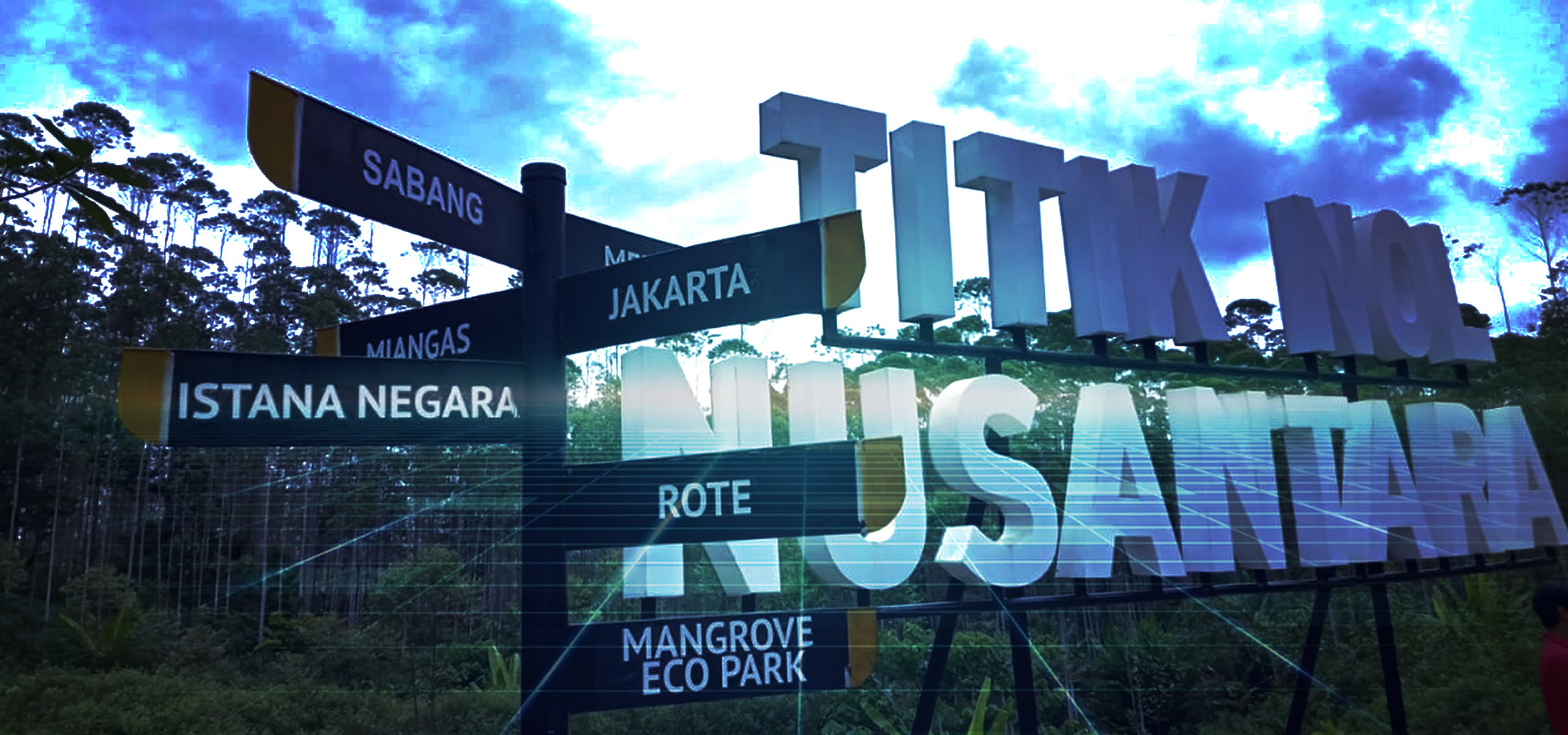New Capital, New Rules. A Closer Look at Land Regulations for Nusantara

The relocation of Indonesia’s capital from Jakarta to a new location in Kalimantan has been discussed for several decades. This discussion was triggered mainly due to the challenges faced by Jakarta, including overpopulation, traffic congestion, and environmental degradation. In August 2019, President Joko Widodo announced the decision to move Indonesia’s capital, and to support this move, the government issued Law No. 3 of 2022 on State Capital. Among others, this Law established a new government agency, the State Capital Authority (Otorita Ibu Kota Negara or “OIKN”), which is a ministry-level agency responsible for the preparation, development, and relocation of the capital, as well as the administration of regional governments in the capital.
The new capital, named Nusantara, is intended to be the centre of the Indonesian government’s activities and to achieve this goal, the government hopes to attract both domestic and foreign investors into Nusantara. To facilitate investment in Nusantara, the government recently issued Government Regulation No. 12 of 2023 on Business Licensing, Ease of Doing Business, Investment Facilities for Business Players in the State Capital (“Regulation”), which offers various incentives that we will discuss in more details below.
Government Will Allocate Land to Secure Investments
Nusantara will comprise of two types of land:
-
Lands as state property (barang milik negara or BMN), which are exclusively allocated for governmental activities.
-
Lands as assets controlled by OIKN (aset dalam penguasaan otorita ibu kota negara or “ADP”), which can be allocated for non-governmental activities.
It appears that this division is implemented to ensure that the government retains control over key areas and strategic locations in Nusantara.
Generally in Indonesia, land titles may be issued directly on state land (tanah negara). In Nusantara, however, an ADP land includes OIKN’s right to manage (hak pengelolaan or “HPL”). Because OIKN holds all HPL in Nusantara, OIKN has the authority to manage and regulate the use of ADP lands, including negotiating the terms and fees for utilisation of such lands. Consequently, investors must sign a land utilisation arrangement with OIKN to obtain a land title on top of the HPL.
Investors in Nusantara can obtain the following land titles for an ADP land:
-
right to cultivate (hak guna usaha or “HGU”);
-
right to build (hak guna bangunan or “HGB”); and
-
right to use (hak pakai or “HP”).
Moreover, the tenure for these land titles is significantly longer than the tenure for such land titles outside Nusantara (i.e., under the 1960 Agrarian Law).
Simplified Process and Guaranteed Tenure of Land Titles
When the initial tenure of a land title in Nusantara expires and assuming that the investor is using the ADP land, an extension and renewal of the expired land title will be granted simultaneously. This is a vital departure from the treatment of expired land titles outside Nusantara, where holders of the title must effectively undergo two processes, i.e., an extension followed by a renewal, to extend the validity of their land titles.
Moreover, although tenure of land titles falls within the authority of the Ministry of Agrarian Affairs and Spatial Planning, in Nusantara, OIKN as the HPL holder can essentially guarantee the validity of one cycle of land utilisation (includes the initial tenure, extended tenure, and renewed tenure), which means that investors in Nusantara will enjoy higher security with respect to their long-term investment plan.
Besides simplifying the process, the combining of the extension and renewal processes also gives investors assurance for their long-term investment plan as the government is giving investors in Nusantara a guaranteed one cycle of land title tenure. After expiration, the land title can be reissued for the second cycle with OIKN’s approval and based on a land utilisation arrangement between OIKN and the holder of the land title.
Residential Property in Nusantara
Freehold for landed housing
In terms of living in Nusantara, the government allows Indonesian citizens to own lands in Nusantara under a freehold (hak milik or “HM”). However, upgrading HGB on HPL is only possible if the residence built on the land is to be transferred to the public, upon OIKN's approval.
To get around the foregoing restriction, OIKN is authorised to release HPL on a land, consequently removing the land’s ADP status, upon receipt of an application by a holder of land title to upgrade its land title to HM. In this context, the land utilisation arrangement with OIKN will also be removed. While Presidential Regulation No. 62 of 2022 on OIKN authorised OIKN to approve the transfer of land titles in Nusantara, it is unclear for now as to whether a transfer of land title involving an ex-ADP land still requires OIKN’s approval.
Foreign citizens will presumably enjoy an assurance of tenure for HP on HPL as the guaranteed tenure mentioned above also applies to foreign citizens. Although foreign citizens can own landed housing by obtaining HP on HPL, the Regulation is silent on minimum price or requirements on ownership by foreign citizens. Moreover, foreign citizens cannot buy, own, and/or possess a government aid housing (perumahan sederhana) in Nusantara, which is a house acquired through the assistance of and/or ease of financing from the government.
We assume that the requirements that apply for foreign citizens owning lands outside Nusantara will apply here (e.g., the foreign citizens must hold a stay permit), and as of now, there is no known exemption for these requirements in relation to landed housing in Nusantara. Therefore, further clarity on these matters is expected to be provided through future regulations.
Strata title for apartments
Under the Regulation, a land under HGB on HPL can be granted a strata title (hak milik atas satuan rumah susun or “HMSRS”) for apartment units. Unlike landed housing, the Regulation is silent on whether foreign citizens can hold strata title in Nusantara.
This move is expected to boost potential buyers’ interest in owning a residential property in Nusantara by implementing a secure and reliable form of land ownership. However, OIKN’s approval is needed before a land with HGB on HPL can be issued with HMSRS.
Further, as mentioned earlier, the ADP status of a land with HGB on HPL must be removed before upgrading the land title to HM. But, it is unclear whether a similar requirement exists for the granting of HMSRS, which could lead to confusion and difficulties in the process.
Other Incentives and Easements
The Regulation also introduced a tax incentive to attract investment in Nusantara. There is a 0% land acquisition fee (bea perolehan hak atas tanah or “BPHTB”) for the issuance of HGU, HGB, and HP on HPL for a specific duration, which unfortunately, has not been determined in the Regulation.
Additionally, the transfer, inheritance, or encumbrance of mortgage on such land titles (with OIKN’s approval) will also be subject to a 0% BPHTB for the transferee for a specific duration, which is also yet to be determined.
Further, the Regulation waives the fees for building approval (persetujuan bangunan gedung) and function feasibility certificate issuance (sertifikat laik fungsi or “SLF”), which are the two licenses that are mandatory for business operators in the region. Again, the Regulation does not specify the duration for the exemption. It is also worth noting that an SLF for a property in Nusantara will be valid for 20 years, a significantly longer period compared to the 5-year validity that applies to other areas in Indonesia.
The government also grants exemptions for the use of foreign workers, in that companies are exempted from the obligation to pay compensation for the use of such workers for a specified duration.
Lastly, the government allows companies to fulfil the obligation of constructing balanced housing (hunian berimbang) by paying conversion funds for balanced housing or by carrying out balanced housing construction within Nusantara.
Key Takeaways
From the above, we can see that the government aims to make Nusantara as attractive as possible, both for investing and living.
For example, based on the guaranteed tenure for land titles, investors can customise the duration of their land utilisation arrangement to meet their investment needs as the term of such an arrangement can be in line with the validity of the relevant land title. This contrasts with areas outside of Nusantara, where the validity of the land title cannot exceed the term of the land utilisation arrangement.
While there are still gaps that are likely to be filled in by future regulations, for example on the requirements and mechanisms for removal of ADP status, we can see that the government is ready to roll out the red carpet for investors to contribute to the development of Nusantara. In essence, the Regulation is a positive development. The introduction of incentives, as well as the promise of future regulations, suggests that the government is committed to creating a conducive environment for investment and growth in Nusantara.
Zefanya Ruth Merari also contributed to this alert.


